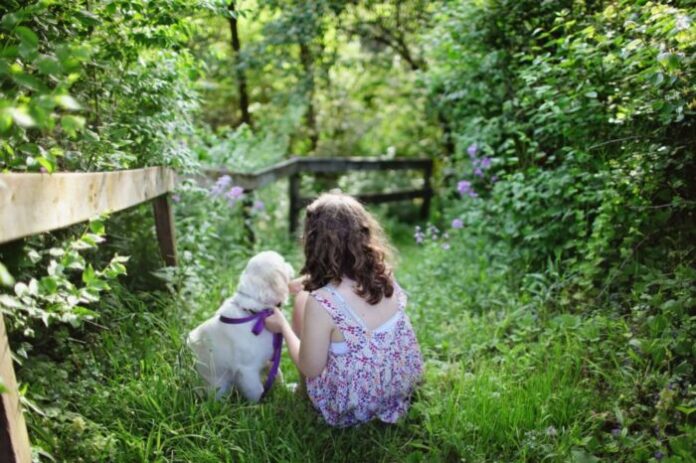
Respect for nature starts from an early age and contact with animals can be fundamental in this process, especially if it is a pet who lives at home with his family. Dogs, cats, rabbits or other pets favor the cognitive development of children, increase their sense of responsibility, help protect them from diseases and represent a powerful anti-stress factor.
Numerous research has shown the beneficial effect that growing with a pet produces on children, starting with newborns who immediately develop a sense of relaxation, protection and tranquility. The benefits are for the personal and social sphere but also for the health of children, and we can summarize them as follows.
Decreases the risk of allergies. A study published by the Clinical and Sperimental Allergy states that living with a pet during the first year of life reduces sensitization to allergies of various kinds by 50%. This study has brought reliable results following 3 years of research on samples of families with and without pets.
Increase self-esteem and sense of responsibility. Caring for an animal necessarily involves responsibilities, which give the child a sense of accomplishment and help him feel independent and competent. Moreover, numerous studies have also shown that children living with animals have greater empathy and more compassion towards other animals and human beings. This means that they have less difficulty socializing because they are already trained to deal with someone different from them, who has different needs and habits.
Helps cognitive development. Growing up with a dog or cat can facilitate language acquisition and improve verbal skills in children. In fact, they do not limit themselves to playing with their pets, but interact with them through verbal and para-verbal language, for the benefit of the relationship with peers and adults.
Fights overweight. Children with animals develop less sedentary gambling methods than peers who grow up without and often spend their days watching TV. In this case, the movement is not perceived as an obligation by the child but as part of taking care of the pet.
Reduces stress. Animals offer unparalleled emotional support and are able to mitigate negative emotions. This applies both to adults but also to children who often find comfort in their pets, able to offer unconditional support without making them feel judged or criticized.
Help to understand the cycle of life. Birth, death, reproduction: these are all common situations when you have a pet. The child thus learns to relate to the mechanisms of life and for parents it can be the ideal starting point for dealing with topics such as mourning and sex, teaching children to live everything naturally.
Taking a pet, ultimately, seems like the best choice. The important thing is that it is not done to satisfy the temporary whims of children but always keeping in mind that a pet – a dog, a cat or another animal – has its needs and its rhythms that go to change even the habits of the host family.






































